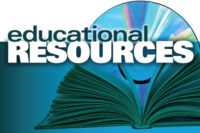In high-pressure fields like occupational safety, professionals are often focused on ensuring workplace safety and mitigating risks for others. However, managing personal finances, particularly unpaid healthcare expenses, can quickly become a challenge. Medical bills tend to stack up during emergencies, unexpected procedures or even during routine treatments. Without proactive management, these expenses can quickly spiral out of control, leading to financial stress, damaged credit, and reduced peace of mind.
This article outlines clear, actionable steps safety professionals can take to identify, prioritize, and resolve unpaid medical bills effectively. By implementing these strategies, you can maintain financial stability and reduce the long-term burden of healthcare expenses.
1. Recognize the scope of unpaid healthcare expenses
Many unpaid medical bills accumulate because they are overlooked or misunderstood. Medical billing is notoriously complex, often involving vague charges, misapplied insurance payments, and multiple invoices from different providers for a single event.
Actionable steps to recognize unpaid expenses:
- Review Statements Monthly: Set aside time each month to thoroughly review all medical bills and Explanation of Benefits (EOBs) from your insurance provider. Compare these to ensure accuracy.
- Use online patient portals: Many hospitals and clinics offer online tools where you can check your medical bills and payment history. Use these regularly to catch unpaid or pending balances.
- Request a detailed bill: If something looks unclear or incorrect, contact the healthcare provider and request an itemized bill. This step can help identify unnecessary or duplicate charges.
If you’re unsure where to start, you can find unpaid medical bills through helpful tools or services designed to simplify this process. Understanding the full scope of your obligations is the first step toward resolution.
2. Prioritize medical expenses based on urgency
Not all unpaid medical expenses carry the same level of risk. Some can wait, while others may have more immediate consequences, such as interrupted treatment or action by collection agencies.
How to prioritize bills effectively:
- Critical needs first: Rank bills related to urgent procedures, essential prescriptions, or ongoing treatments as top priority. Delaying these could impact your health.
- Understand provider timelines: Hospitals and doctors often offer grace periods before sending bills to collections. Call the billing department to confirm deadlines and avoid unnecessary penalties.
- Triage for collection risk: Bills over 90 days past due are more likely to impact your credit score. Address these promptly to protect your financial standing.
By sorting medical bills based on urgency, safety professionals can focus resources on the most immediate needs while maintaining control over less pressing debts.
3. Explore payment options to avoid late fees and collections
A common challenge with unpaid healthcare expenses is the rapid accumulation of late fees and interest. Ignoring bills can lead to collections, which damage your credit score and make resolution more difficult. Fortunately, there are solutions to manage payments effectively.
Payment options to explore:
- Negotiate a payment plan: Contact healthcare providers to request an interest-free installment plan. Many hospitals offer this to patients unable to pay in full.
- Ask for discounts: If you’re paying out-of-pocket or in cash, providers often offer discounts. Even a small reduction can make a significant difference.
- Financial assistance programs: Nonprofit hospitals are required to provide financial assistance to eligible patients. Check if you qualify for reduced or forgiven balances.
- Alternative short-term solutions: For urgent bills that cannot wait, consider low-interest financing options to avoid late fees or collections.
Taking the time to explore and negotiate payment options ensures you maintain control over your bills while avoiding unnecessary financial strain.
4. Maintain detailed medical and financial records
Effective management of unpaid medical bills begins with staying organized. Disorganization can cause missed payments, duplicate charges, and confusion over what’s owed.
How to organize records:
- Use a digital or physical filing system: Keep all bills, payment confirmations, insurance claims, and EOBs sorted by provider and date. Scanning paper documents into a digital format helps prevent loss.
- Track bills with a spreadsheet: Maintain a simple spreadsheet that includes bill amounts, payment dates, provider names, and due dates. Highlight overdue bills to address them quickly.
- Monitor your credit report: Unpaid medical bills sometimes appear on credit reports without warning. Check your credit report regularly to spot and address these debts.
Maintaining accurate and organized records empowers you to manage bills effectively and resolve discrepancies faster.
5. Understand insurance policies to minimize out-of-pocket costs
A significant portion of unpaid bills arises from misunderstandings about insurance coverage. Knowing the ins and outs of your policy (including the fine print) can help reduce financial surprises.
Key actions to understand insurance better:
- Review your policy details: Understand your deductible, co-pays, out-of-pocket limits, and coverage for procedures or prescriptions.
- Clarify denied claims: If an insurance claim is denied, don’t assume the decision is final. Appeal the denial with supporting documentation and contact your insurer for clarification.
- Utilize preventive care benefits: Many insurance plans cover preventive check-ups and screenings at no cost. Taking advantage of these can prevent costly health issues later.
Staying informed about your insurance plan helps reduce out-of-pocket expenses and ensures you’re not overpaying for medical services.
6. Seek professional guidance when needed
Managing unpaid medical expenses can become overwhelming, especially when bills are large or complicated. Seeking help from professionals can simplify the process and reduce financial stress.
Who to consult:
- Patient advocates: These specialists can negotiate bills, identify billing errors, and help reduce medical debt. They are particularly helpful for complex cases.
- Financial counselors: Some hospitals and nonprofit organizations offer free or low-cost financial counseling to help you develop a repayment plan.
- Legal assistance: If you face aggressive collection actions or unclear billing practices, consult legal aid for guidance.
Don’t hesitate to seek help if you feel stuck—professionals have experience navigating the healthcare billing system and can often achieve better outcomes.
7. Build a financial buffer for future medical emergencies
While resolving unpaid bills is critical, preparing for future healthcare expenses can prevent similar issues from recurring. Building an emergency fund ensures you have a safety net for unexpected medical costs.
Steps to build a medical emergency fund:
- Start small: Begin by setting aside a small portion of your paycheck, even $25 per week. Over time, it will add up.
- Automate savings: Use an automatic savings tool to transfer a set amount into an emergency fund account regularly.
- Reduce non-essential spending: Identify areas where you can cut back, such as dining out or subscriptions, to redirect money toward your emergency fund.
An emergency fund provides peace of mind and financial stability, reducing your reliance on short-term solutions when unexpected healthcare costs arise.
Expect the unexpected
Managing unpaid healthcare expenses doesn’t have to feel overwhelming. By taking proactive steps—such as recognizing bills, prioritizing payments, understanding insurance policies, and building an emergency fund—safety professionals can regain control over their finances and reduce stress.
Addressing medical bills promptly ensures you maintain financial health while focusing on your critical role in workplace safety. Taking these steps now can help you avoid unnecessary fees, protect your credit score, and build a stronger financial foundation for the future.







